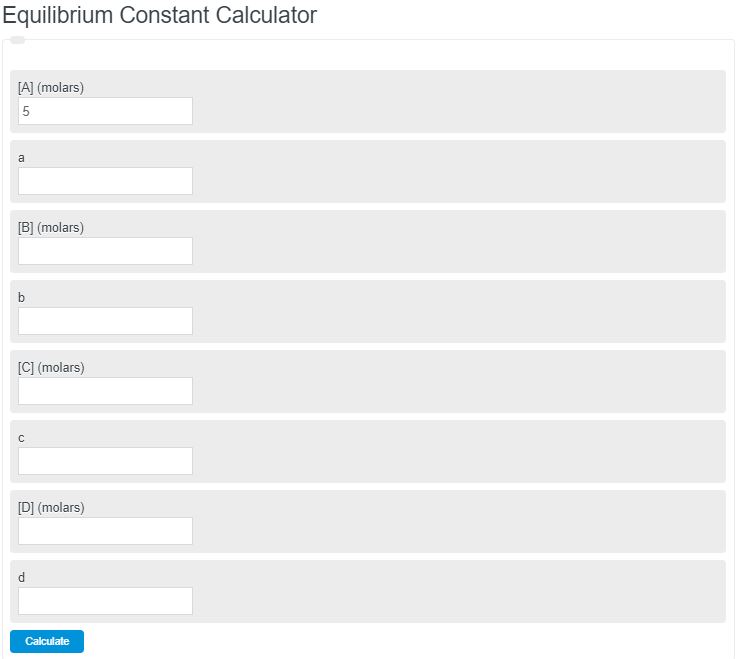Enter the molar concentration and coefficients of the 4 substances into the calculator. The calculator will evaluate and display the equilibrium constant of those substances.
Equilibrium Constant Formula
The following formula can be used to calculate the equilibrium constant of a solution.
K = ([C]^c * [D]^d)/([B]^b * [A]^a)
- Where K is the equilibrium constant
- [A,B,C,D] are the molar concentrations of those substances
- a,b,c,d are the coefficients of each substance
To calculate the equilibrium constant, take each molar concentration and raise it to the power of the coefficient of each substance. Next, multiply the results from C and D together and divide by the product of the results B and A together.
Equilibrium Constant Definition
An equilibrium constant is a constant used to describe when a solution will be at equilibrium.
Equilibrium Constant Example
How to calculate equilibrium constant?
- First, determine the molar concentrations of each substance
Calculate or measure the concentrations of each individual substance.
- Next, determine the coefficients
Determine the corresponding coefficients of each substance.
- Calculate the equilibrium constant
Using the information from steps 1 and 2, calculate the equilibrium constant.
FAQ
An equilibrium constant is a constant used to describe when a solution will be at equilibrium.

